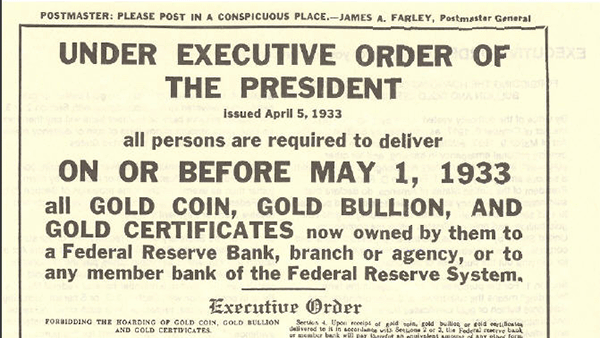Jurisdictional Risks: Choosing the Safest Country to Store Precious Metals
22 March 2024

Global investors often turn to precious metals such as gold and silver to safeguard their wealth in the face of escalating economic uncertainties and geopolitical tensions. However, the security of these assets extends beyond mere ownership; it also hinges on where and how they are stored.
Selecting the right country for vault storage is important and can be crucial in determining if one’s wealth survives a crisis.
In this article, we use our experience in wealth protection and precious metal vaulting to identify the potential jurisdictional risks that investors should consider before storing gold and silver offshore.
Why Store Precious Metals Offshore?
While people may buy gold and silver for reasons varying from investing for capital gains, building generational wealth, or protecting against currency debasement and inflation, protecting wealth for the long term with physical precious metals or bullion may require further thinking about how risks can be minimized for one’s precious metal holdings.
The primary reason to consider storing precious metals offshore, outside the borders of one’s country of residence, is often risk diversification. The purpose of spreading the risk of loss to wealth lends itself to one’s wealth protection strategy.
How this strategy is executed will differ depending on your country of residence. If your home nation has a history of political instability, currency mismanagement, or wealth confiscation or is even in close proximity to conflict zones, it may not be the safest place to store precious metals. The risk of loss to your precious metal holdings is potentially high, and you should consider mitigating the risks by storing them in safer jurisdictions.
However, you may be uncomfortable initially entrusting and storing wealth to a third-party vault thousands of miles from your home. This is where understanding and selecting the right country to store wealth is important. You will be surprised at how safe it can be once you understand the power of leveraging the jurisdictional strengths of the best countries to store silver and gold.
Top 5 Jurisdictional Risks to Storing Bullion
Let’s begin with understanding the top jurisdictional risks frequently associated with storing bullion.
#1 - Gold Confiscation Risk
The United States may often be referred to as “the land of the free,” given the freedoms enshrined in the First Amendment of the U.S. Constitution, but Americans were not free to own gold for a period of 40 years between 1933 and 1974.
This gold ban resulted from President Franklin Roosevelt’s Executive Order 6102, which forbade the ownership of gold coins, bullion, and gold certificates worth more than US$100, roughly about 5 troy ounces, based on the then-fixed gold price of US$20.67.
Given less than a month’s notice of the new laws, Americans who did not turn in their gold faced criminal charges and were sentenced to up to 10 years in federal prison.
President Roosevelt enacted the gold ban as the Great Depression worsened. People hoarded gold, weakening banks with massive withdrawals. As gold drained from the financial system, which was on a Gold Standard, the U.S. government needed gold to print dollars to stimulate the economy.
Executive Order 6102 was the government’s solution, requiring people to turn in their gold in exchange for US$20.67 per troy ounce. This began the 40 years in which owning gold was a federal felony.

In 1959, Australia also enacted a law that allowed the government to seize private citizens’ gold if it was “expedient so to do, for the protection of the currency or of the public credit of the Commonwealth.” The law stated that “gold, apart from wrought gold and gold coins to a limited extent, had to be delivered to the Reserve Bank of Australia within RESERVE BANK OF AUSTRALIA one month of its coming into a person's possession."
In 1966, the British government also banned private citizens from owning more than four gold coins and blocked gold coin imports in its bid to stem the British pound’s slide on currency markets. This UK gold ban happened despite the UK not being on the Gold Standard.
Fast-forward to the present, America is facing mounting deficits and the gradual loss of confidence in the dollar again. The same economic pressures that could make a president enact laws to confiscate gold again are here. It could be a matter of when the right crisis erupts to tip the scales on America’s fortunes and make politicians consider nationalizing gold as a solution to save the dollar.
Many Western governments are also heavily reliant on money printing to monetize debt and debase the purchasing power of their currencies. Given history’s many examples of governments resorting to gold seizures in defense of fiat currencies, it is important to select countries with excellent fiscal policies and financials as your choice location for storing precious metals.
Countries with good financial standing are less likely to confiscate private citizens’ gold, an act that can be extremely reputation-damaging and lose foreign investors’ confidence over the long term.
If your resident country is trapped in an endless spiral of increasing debt and mired in currency debasing policies, you may want to consider storing your gold and silver holdings in a financially sound country offshore.

#2 – War and Conflict Risk
Storing precious metals in countries at risk of war or conflict or those situated near conflict zones poses significant threats to the safety and security of investors' assets. In regions plagued by geopolitical tensions or internal strife, the likelihood of assets being compromised by warfare, looting, or government seizure increases substantially.
The breakdown of law enforcement in war and the unpredictability of conflict make it challenging to ensure the protection of precious metals stored within such volatile environments, exposing investors to heightened risks and potential losses.
In addition, countries that are unable to defend themselves from invasion, either due to the absence of a military or weak military capability, are poor options for storing wealth for the long term.
Rather, countries situated in peaceful zones with a sizeable military force are better options for vaulting precious metals.
#3 – Political Risk
Selecting politically stable countries for storing precious metals is important to safeguarding investments against risks inherent in volatile geopolitical environments. Political stability fosters a predictable and secure regulatory framework, reducing the likelihood of sudden policy changes, arbitrary confiscations, or expropriations of assets by the government.
Beyond wealth confiscations, politically unstable countries may enact sudden policy changes that affect capital flow, wealth taxation, or export of goods, which may impact the safekeeping of precious metals within its borders.
Countries with established democratic institutions, transparent governance structures, and respect for the rule of law provide a conducive environment for protecting precious metal holdings and preserving investors' wealth.
#4 - Legal and Regulatory Environment Risk
Storing silver and gold in countries with low legal and regulatory environment risk ensures robust legal protections and minimizes the potential for unforeseen legal hurdles or complications.
Jurisdictions with well-defined legal frameworks and clear regulations governing private property ownership and storage offer investors greater certainty and confidence in the security of their assets.
Moreover, a strong rule of law fosters transparency, accountability, and adherence to international standards, enhancing investor trust and confidence in the jurisdiction's justice and financial system.
Countries with strong legal protections for property rights, contract enforcement, and investor-friendly regulations provide a stable and predictable environment that is excellent for storing wealth like precious metals.
Such countries mitigate the risk of encountering ambiguous laws, bureaucratic hurdles, or regulatory challenges that could jeopardize the integrity of their precious metal holdings.
Investors can rest assured that their assets are shielded from arbitrary government interventions or regulatory overreach, ensuring the preservation of wealth and the integrity of their investments for the long term.
#5 – Firearms Risk
Opting for countries that prohibit firearms can significantly contribute to a safer environment for your offshore gold storage strategy, as it reduces the risks associated with armed theft, violence, and unauthorized access to storage facilities.
Firearms prohibition laws also lower rates of gun-related crime and violence, thereby significantly reducing potential armed robbery risks.
Moreover, firearms greatly increase the difficulty of securing a vault, as they can escalate the level of threat and make it more challenging to deter potential intruders or criminals seeking to breach security measures.
An overall safer environment also impacts the costs of vaulting precious metals, including insurance premiums and other security-related costs.
Best Countries to Store Gold
When it comes to selecting the best and safest countries to store precious metals, certain jurisdictions stand out for their favorable conditions that offer investors peace of mind and security. Among these, Singapore and Switzerland emerge as top contenders, each offering unique advantages that cater to the needs of discerning investors seeking optimal protection for their valuable assets.
Switzerland
Switzerland has long been revered as a premier choice for offshore gold storage. It is renowned for its longstanding commitment to financial stability, security, and confidentiality.
The country's robust legal framework, political neutrality, and adherence to the rule of law provide a solid foundation for safeguarding valuable assets against external threats and any potential government interference.
Switzerland’s political system is very stable, owing to a “magic formula” whereby the coalition government is formed by four collaborating political parties. The country has been a neutral state for centuries, committed to refraining from taking sides and abstaining from armed conflict unless it is attacked.

The country’s stance is one of armed neutrality. Surprisingly, Switzerland has one of the highest gun ownership rates, with almost 28 guns owned by private individuals per 100 inhabitants – ranked fourth in Europe. Soldiers can also buy their service weapon for a modest sum upon military service completion. However, despite the high rates of gun ownership, Switzerland has very low gun homicide rates – about 20 times lower than in the United States, according to the Global Health Exchange Data. The Swiss believe that an armed citizenry upholds the country’s neutrality and is part of their patriotic duty to protect their homeland.
In the wake of the Russian-Ukraine War on the European continent, Switzerland is planning to strengthen its military through increased military spending over the coming years. In 2023, the country allocated about US$2.1 billion to equip its armed forces.
While Switzerland is also known for its bank secrecy tradition and privacy protection, U.S.-led pressure in recent years to uncover foreign funds held in Swiss banks has titled the country towards banking transparency. Moreover, with the 2022 government-engineered rescue of Credit Suisse by the UBS Group, the Swiss banking sector’s longstanding reputation to be safe has taken a significant hit.
Ranked 7th in the world for its gold reserves, it is no wonder that the alpine country is home to an extensive network of world-class vault storage facilities, some burrowed deep into its mountains.
However, gold storage costs are high, given the country’s high living standards. Traditional gold storage options are often found in safe deposit box services with banks, and they are known to be more favorable to keeping client monies under management instead of encouraging transactions.
Regardless, Global Finance Magazine ranks Switzerland as the sixth-wealthiest country and has the highest millionaire density in the world.
Additionally, Switzerland's strategic location in the heart of Europe provides investors with access to a diverse range of markets and economic opportunities, making it an attractive destination for diversifying precious metal holdings.
Singapore
Given its exemplary track record in governance and finance, Singapore stands out as a premier destination for vault storage of precious metals. The city-state has consistently garnered international accolades, underscoring its reputation as a global leader in transparency, efficiency, and investor protection.
Singapore’s accolades include being ranked the third wealthiest country in the world by Global Finance Magazine and the third top global financial center based on the Global Financial Centres Index 34 (GFCI 34) rankings.
According to Global Finance Magazine, the city-state is also home to Asia’s safest banks. Furthermore, Singapore retains its top position as having the world’s best business environment for the 15th consecutive year in 2023, as ranked by the Economist Intelligence Unit (EIU).
In terms of governance, Singapore came out tops in the Chandler Good Government Index 2023 for having the most effective government. According to the 2023 Transparency International Corruption Perception Index (TI-CPI), it is also the fifth least corrupt country.

Singapore's commitment to upholding the rule of law is recognized by its third ranking in the World Justice Project’s Rule of Law Index 2023 for just law, accountability, open government, and justice system competence. The city-state is ranked first in the region in order and security, civil justice, criminal justice, regulatory enforcement, and the absence of corruption.
Possession of firearms and ammunition is also illegal and a criminal offense that carries a jail term between five and 10 years and given at least six strokes of the cane. Any person who uses or attempts to use arms can face the death penalty, according to Singapore’s Arms Offences Act. The country’s strict gun control laws are also the reason why Singapore’s firearms-related crime is one of the lowest in the world.
Additionally, Singapore's strategic location in the heart of Southeast Asia offers investors access to dynamic markets and economic opportunities, further enhancing the attractiveness of the country as a preferred destination for storing precious metals. The city-state is the world’s top maritime center for the 10th consecutive year in the Xinhua Baltic International Shipping Centre Development Index 2023 (ISCD). According to the World Shipping Council, it is the world’s second busiest port.
Unbeknownst to many, Singapore is a global giant in the petrochemical and refining industries. It has the world’s largest bunkering port and Asia’s largest oil trading hub.
Singapore also heavily invests in defense to safeguard the country's significant progress since its 1965 independence. Its 2024 defense budget of US$15 billion is more than three times that of Malaysia, its closest neighbor. The Singapore Armed Forces (SAF) is considered a mid-sized military, able to raise an operationally-ready force of 400,000. It has more combat aircraft than larger countries such as Malaysia, Thailand, Switzerland, and Belgium. Military assets and personnel are also distributed in bases around the world as part of Singapore’s defense strategy.
Finally, Singapore is one of the few countries in the world with no net debt. It is a net creditor nation, enjoying the highest credit ratings from international ratings agencies like Fitch, Moody’s, and Standard & Poor’s.
Despite its diminutive land area, Singapore has the 23rd-largest gold reserves in the world. In 2023, the country was the third-largest net gold buyer, joining other like-minded central banks in increasing their gold reserves.
There are also tax benefits when vaulting platinum, silver, and gold holdings in Singapore. Buying investment-grade bullion is VAT-exempt (no sales tax), and there is no capital gains tax (CGT) when you sell bullion.
With its reputation for reliability, transparency, and efficiency, coupled with a myriad of international accolades affirming its status as a leading developed nation, Singapore is an excellent destination for vault storage of precious metals. Many investors have come to appreciate Singapore's combination of security and efficient governance.
Store Bullion in a Private Vault, Like The Safe House in Singapore
The Safe House vault has been providing precious metal storage in the safe country of Singapore since 2012. We have over a decade of experience managing the secure storage of our clients' stored gold, silver, and other precious metals.
Located within The Reserve wealth hub in eastern Singapore, The Safe House is a state-of-the-art vault equipped with modern security measures that further enhance the benefits of offshore precious metal storage in this safe country.
Possessing one of the most comprehensive precious metal insurance coverage in the industry that includes protections against terrorism and sabotage, inside jobs, and mysterious disappearances, The Safe House is one of the best private vaults in Singapore.
Whether you are looking to rent a safe deposit box or a dedicated private vault, we are confident that The Safe House and The Reserve have the proper storage facilities to meet your financial goals.
Please contact us for a consultation with one of our vaulting representatives for more information.
The Takeaway
While physical gold and silver are widely recognized as the ultimate wealth-preservation assets throughout mankind’s history, storing precious metals with a trusted custodian in a safe jurisdiction is equally important to extract the wealth-preserving benefits fully. Given the current global geopolitical and economic uncertainties, storing bullion in high-trust countries like Singapore and Switzerland can be an excellent way to diversify wealth and minimize potential risks in your resident country. Harnessing the power of jurisdictions has always been a strategic tool in the wealth protection toolbox for the wealthy and financially informed.